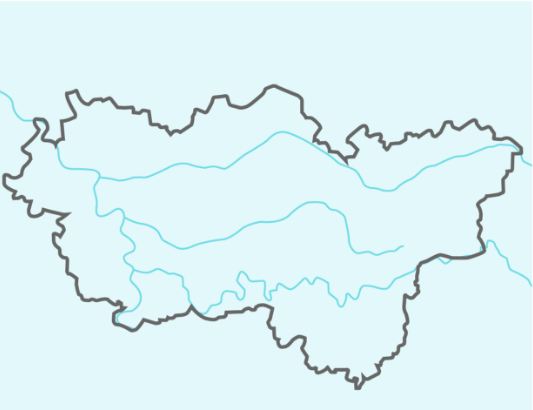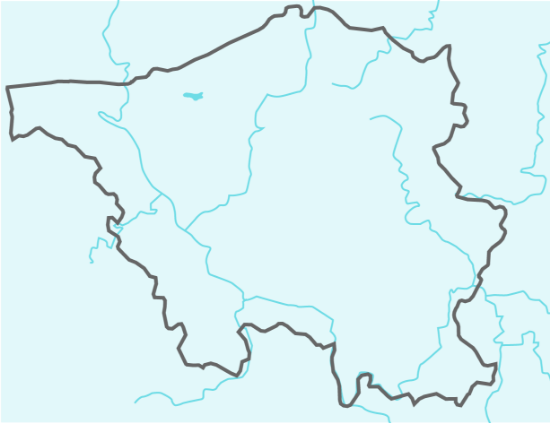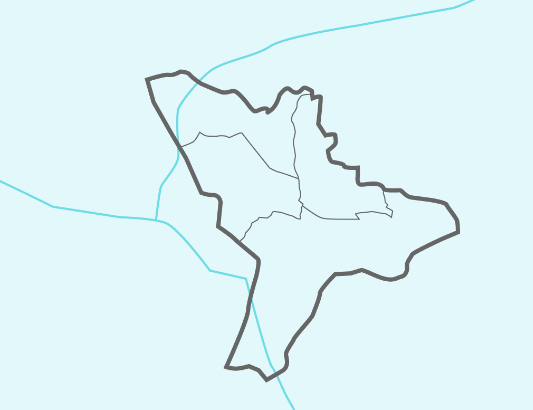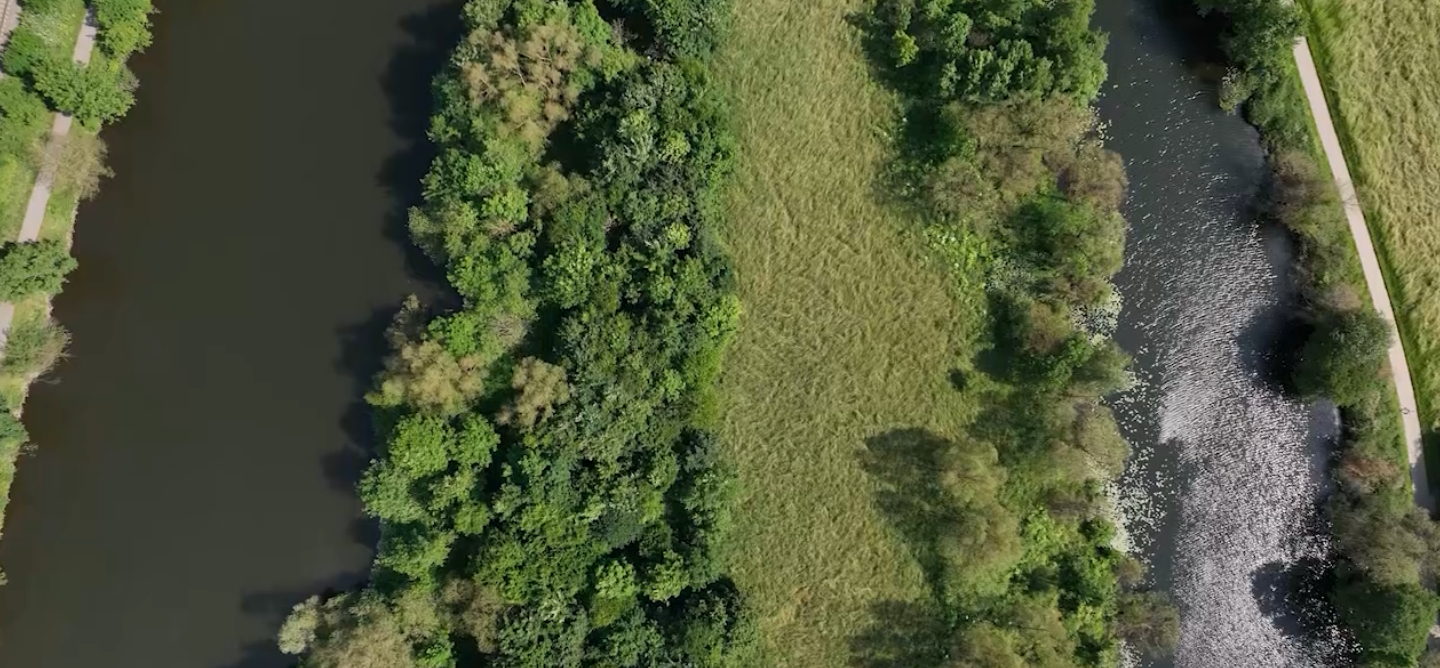
Perpetual obligations
The RAG-Stiftung finances perpetual post-mining obligations in the former hard coal mining regions along the Ruhr and Saar rivers and in Ibbenbüren. All these tasks revolve around the issue of water. On behalf of the RAG-Stiftung, its wholly owned subsidiary RAG Aktiengesellschaft ensures that rising pit water does not mix with higher-lying drinking water reserves. It also prevents the flooding of what are known as mine subsidence areas.
The perpetual obligations include:
- treating pit water in former underground mining operations,
- pumping away surface water, and
- purifying and monitoring groundwater at some former mining sites, especially around coking plants.
Finite post-mining tasks, termed inherited liabilities, are explicitly not part of the perpetual obligations financed by the RAG-Stiftung. They include, for example, the renaturation of areas used for mining, rehabilitation of shaft or the settlement of claims due to mining-related damage. RAG Aktiengesellschaft has already made financial provisions for the associated costs.
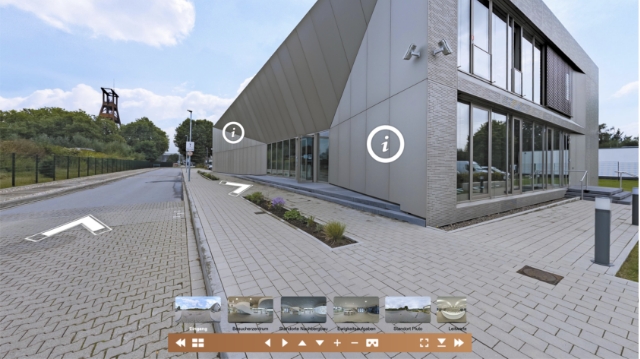
All that demands permanent technical and logistical measures. They have been controlled and monitored centrally from Herne-Wanne for all pit water management sites since 2019. RAG’s state-of-the-art control centre there gathers all operating data and process information.
In the Ruhr region, RAG Aktiengesellschaft also cooperates closely with the regional water industry associations. The Emschergenossenschaft, Lippeverband and Linksniederrheinische Entwässerungs-Genossenschaft are responsible on behalf of RAG for all polder measures required as a result of mining in the Ruhr region. In addition to numerous groundwater and dry well water pumping stations, these associations have over 100 years of experience in the end-to-end management of watercourses.
In accordance with the special regional and, in particular, geological circumstances, the perpetual obligations following the end of mining along the Ruhr and Saar and in Ibbenbüren differ from each other. Individually tailored solutions are used at each site to ensure these tasks are tackled in the most energy-efficient, climate-friendly and cost-conscious way possible.
Stringent limits apply to the discharge of pit water and must be strictly observed to ensure that the quality of water bodies has a good ecological status. RAG Aktiengesellschaft carries out related controls on behalf of the RAG-Stiftung. Additional checks are regularly conducted by independent external institutions. The RAG-Stiftung also supports knowledge building by supporting the Technische Hochschule Georg Agricola (Georg Agricola University of Applied Sciences) and the latter’s Forschungszentrum Nachbergbau (Research Centre of Post-Mining/FZN). This ranges from a holistic understanding of the hydrological system in former mining regions, to the sustainable use of pit, ground and surface water, to possibilities for recovering valuable materials and heat from pit water.
How is pit water formed?
Rainwater and surface water continually seep through cracks and fissures into the low-lying old mine workings. In particular, salts and iron are absorbed en route – and these should not come into contact with natural groundwater reserves. That necessitates prudent water management that takes into account the requirements of both ecological and economic sustainability.
Interesting facts
Why it is necessary for the pit water level to rise?
The level of the pit water usually has to be raised so that it can be fed underground to a handful of water management sites – but only so that the new level remains well below the relevant groundwater horizons. Such a controlled rise always requires an orderly regulatory procedure with expert appraisals. Approvals are granted only if strict limits are observed and comprehensive safety for people and the environment is guaranteed.
What is the advantage of letting pit water rise?
In addition to technical requirements, there are also many ecological reasons in favour of allowing pit water to rise in a controlled manner. Firstly, that significantly reduces energy consumption and CO2 emissions resulting from the use of powerful pumps. Secondly, an expert report commissioned by the state government of North Rhine-Westphalia in 2017 shows that the rise in pit water is accompanied by a significant reduction in salinity and pollutant loads.
Perpetual obligations
Pit water management
In the former mine workings, many hundreds of meters below ground, the water level continuously rises due to the influx and seepage of rainwater and surface water. To prevent the pit water, which contains salts and iron, from coming into contact with drinking water, it is collected at central points and pumped away. RAG Aktiengesellschaft performs this task on behalf of the RAG-Stiftung. Continuous optimisation and further refining of the pit water concept ensures that this process is as energy-efficient, climate-friendly and cost-conscious as possible.
Polder measures
200 years of industrial hard coal mining history have changed the topography of the land. Entire areas have subsided, in extreme cases by as much as 25 metres. In order to protect such depressions against flooding, the way in which the surface water is drained off must be permanently regulated at the locations in question. This is ensured by pumping stations, by deepening water bodies, or through dyke measures: from planning, through implementation and ongoing operation, to constant maintenance.
Groundwater purification
Comprehensive remediation of the areas around some former coking plants is required to prevent pollutants from seeping into the drinking water. That includes reliably identifying potential and actual risks, eliminating them through appropriate measures and regularly reviewing their effectiveness. Where contamination occurs, the water flows in question are intercepted and purified.
